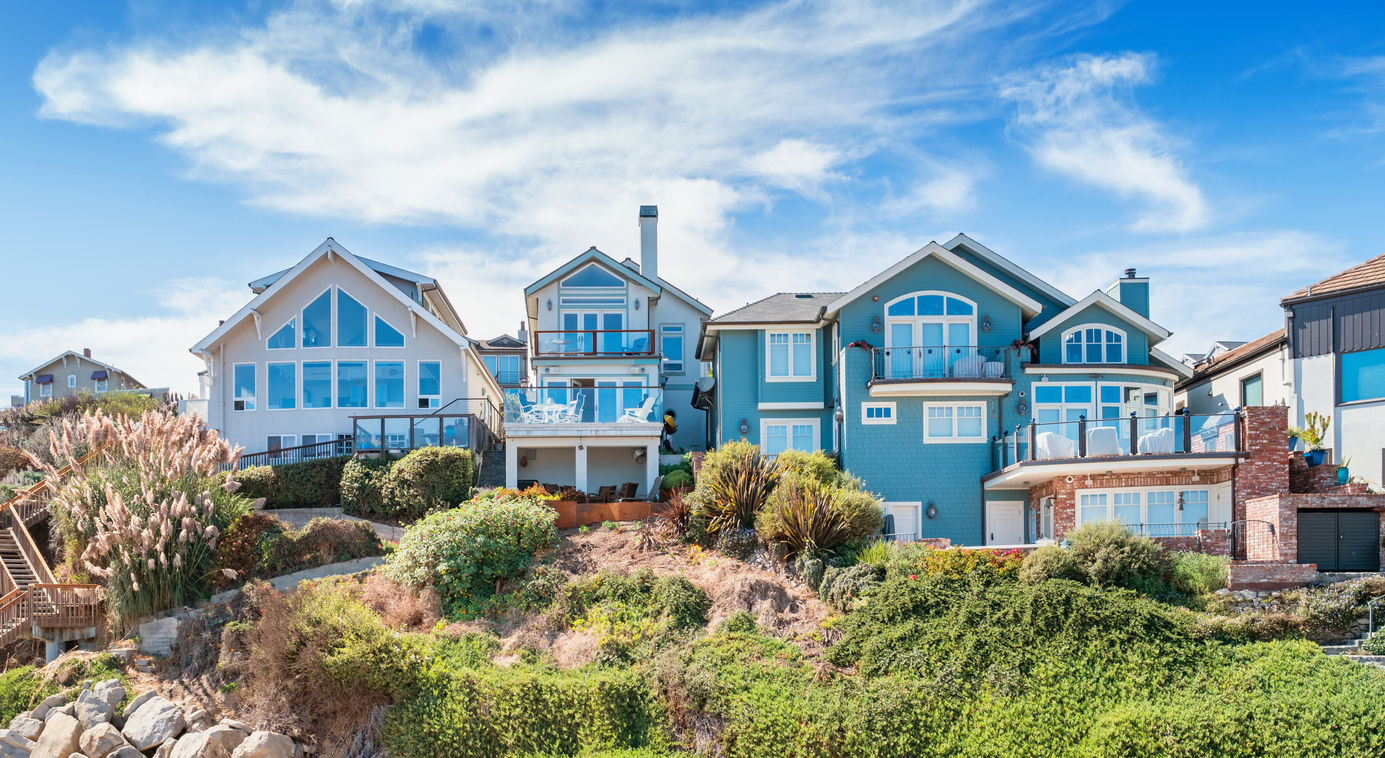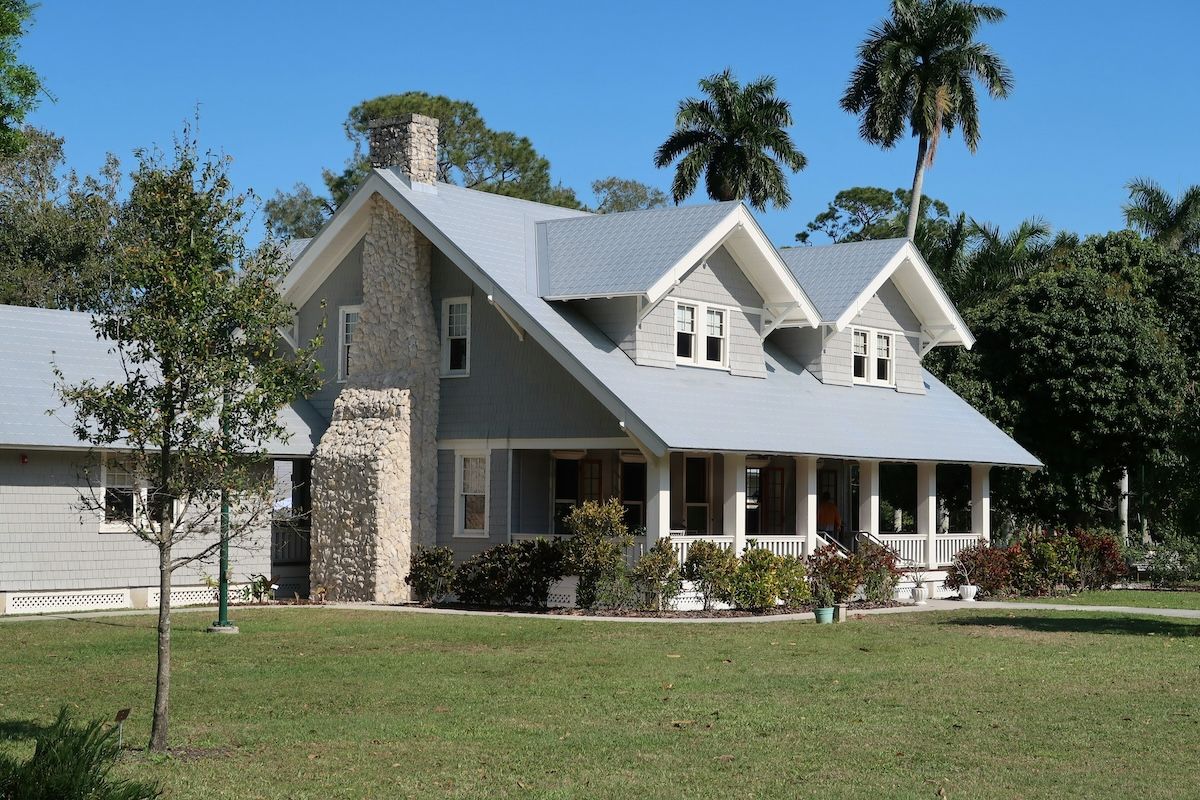How to Save for a Downpayment for a House – 5 Things to Know
Click here to browse our Real Estate Agent Directory and contact top-rated agents in your area!
You might be wondering why you should save for a downpayment, or even if it’s possible for you.
Will I have enough saved to pay for my house? What are the benefits of saving for a downpayment? Can I still buy a house with no money down?
These are all questions that might come up on your path to homeownership.
A recent study by LendingTree had some surprising news. They found that 54% of people who don’t plan to buy a home would if they could afford the downpayment. But they can!
Are you getting into the market? Or starting to think about buying your own home? Either way, don’t miss these 5 tips on saving for a downpayment on a house.
1. What is the average downpayment on a house?
Step 1 in figuring out how to save for a downpayment is knowing how much you’ll need. After all, you should know what goal you’re budgeting for.
The average downpayment amount on a house depends on the type of loan and the cost of the home. But the most common downpayment is 20% of the value of the house.
20% is kind of the magic number. With it, you can avoid private mortgage insurance (PMI) and take advantage of the lowest mortgage rates. But it’s not your only option.
In fact, according to the National Association of Realtors, first-time buyers only put down an average of 12%. For home buyers aged 30 and under, that number drops to 6%!
So how much do you really need for a down payment on a house? Short answer: It depends on what you can afford to pay upfront and on a monthly mortgage payment.
2. Is Buying a house with no downpayment or a low downpayment possible?
Yes!
According to NeighborWorks America, most Americans overestimate the amount of money needed to qualify for a home loan. The majority of those surveyed — 68% — think they need more than 20% in savings to be able to buy a home when it’s actually possible to buy a home with no downpayment at all!
But what if you don’t qualify for zero downpayment? Or you don’t have any money saved up? Or what if you don’t want to tie up all your cash in a house?
Is buying a house with no down payment even possible? It is!
Here are just a few of the options for a no or low downpayment:
USDA Loan
The U.S. Department of Agriculture offers a 100% financing mortgage. This program is known as the ‘Rural Housing Loan’ or simply ‘USDA loan.
The best part is that the USDA Rural Housing Loan is not actually just for “rural” housing. Buyers in suburban areas may be eligible for this loan too. The goal of this government loan is to help “low-to-moderate income homebuyers,” wherever that is.
VA Loan
The VA loan is available to members of the U.S. military, veterans, and surviving spouses. This is a no-downpayment mortgage that can really help military personnel and their families.
VA loans have lower rates and easier requirements, for those who meet the VA mortgage guidelines. And, they’re backed by the U.S. government.
FHA Loans
This is for those who don’t meet the requirements of a USDA or VA loan but still want a small downpayment. This is the most common low-downpayment loan, with downpayments starting at 3.5%.
The FHA doesn’t hand out loans itself. Instead, it sets the basic lending requirements for banks and insures these loans once they’re made. Nearly all private mortgage lenders offer FHA loans. So you shouldn’t have trouble finding one.
The other benefit of FHA loans is that the FHA is well-known for going easy when it comes to credit scores. The FHA will usually insure home loans for people with low credit scores, as long as there’s a reasonable explanation.
The percentage downpayment of an FHA loan depends on your credit score. For example, for a 3.5% downpayment, you have to have at least a 580. If you’re in the 500-580 credit score range, you can get a 10% downpayment loan.
Pros and Cons of Low and No Downpayment
Buying a home with no down payment takes care of one of the most difficult parts of a home purchase. It’s difficult to save that much money, and it’s scary to put it all into a home when there are other needs and uses for that money.
You can find lenders that offer loans with no or low downpayment loans, but it’s important to understand the pros and cons of those loans.
Pros of Low-Down Home Loans
- Can help if you’re struggling to save for a down payment or don’t have the credit score for a conventional loan
- Less stringent credit score requirements
- These loans are easier to qualify for than conventional mortgages.
Cons of Low-Down Home Loans
- These loans require private mortgage insurance (PMI) in most cases
- The premiums on PMI can be as little as 0.3% or as much as 2% of the total loan amount each year
- The PMI is something you’ll have to pay as long as you have that mortgage, so it’s important not to overlook this cost

3. Can I cash out a 401k for a house downpayment?
A 401(k) plan is an employer-sponsored retirement savings account. You can contribute to the account from your paychecks (before taxes are taken out), and your employer might also contribute. When you reach retirement age, you can cash out the account and use this money however you want.
In most cases, you can’t cash out a 401(k) until you’re 59 ½. However, you can make a “hardship withdrawal” under certain circumstances. One reason for this kind of withdrawal is to purchase a house.
However, you can’t make an early withdrawal – even a hardship one – without some consequences. Taking money out early will cause a penalty of 10% plus any income tax owed on the withdrawn amount.
Instead of “cashing out” your 401k for a house downpayment, you might want to borrow from it instead. You can borrow up to $50,000 from your 401k, or up to half its value. There is a drawback though – you usually will only have 5 years to pay back the loan.
Choosing either route has some drawbacks, like losing out on tax advantages and investment growth. But borrowing from or cashing out your 401k for a house downpayment can get you one step closer to owning your own home.
4. Are there special downpayment options for first-time homebuyers?
First-time homebuyers have a lot of different options to choose from including FHA loans, USDA loans, and the Good Neighbor Next Door program.
If you’re like most first-time buyers, the down payment is your biggest hurdle. But it can really pay off to know your downpayment options. There are more than 2,500 homebuyer programs available across the country. They can be as unique as the homebuyers and communities they serve.
Although it is possible to buy a home with a small downpayment and no closing costs, it might not be the best option. You can end up paying more in interest and private mortgage insurance in the long run.
If you can swing it, you may want to consider saving for the full 20% for a downpayment on a house instead. This way, you’ll have one less thing to worry about when it comes to paying for your first home.
5. How Do I start saving for a downpayment on a house?
Whether you choose a 3.5% FHA loan or decide to go for the 20%, a downpayment can still require some planning.
Saving for your first home is exciting and scary, but following these five steps can help you reach your goal:
Set a reasonable timeline.
When saving for a down payment on a home, the sooner you can start, the better.
If you have time before you need the money, you can invest in stocks, bonds, or other high-yield investments. But keep in mind that these options are risky, which means you could lose money.
No matter how much time you have before you need the money, small steps can add up to big progress. Even if all you can do is save $10 a month, that’s $120 more per year than you would have saved otherwise.
Don’t be afraid to cut your budget
The only way to save money is to spend less than you earn. That might sound simple, but it’s easy to forget when you’re shopping online or indulging in a Friday night treat.
Take a look at what you’re spending on food and entertainment. Do you go out for lunch? Do you buy coffee or snacks every day? How much do you spend on going out in the evening? You don’t have to give up all those things, but if you’re serious about saving money, this is a good place to start.
Look at other places where you can trim expenses: cable TV, subscriptions, new clothes, gym memberships
Set an automatic savings plan
The best way to save money is by making it a habit. Set up an automatic savings plan with your bank. That way with each paycheck a set amount goes into your savings account.
Even better, if your bank offers it, set up a separate savings account and have it withdrawn automatically each month. If you don’t see the money in your checking account you won’t miss it.
Also consider setting aside any money you get as a gift for your birthday or holidays into your savings account. That way, you don’t end up spending it on something unnecessary and it can go toward helping build your savings.
Ultimately, buying a house can seem overwhelming. Even when you’re ready, saving up enough for a downpayment is a tall order when you already have bills and other expenses.
Here’s the good news: You can put as little as 3.5% down on a home depending on your loan. And there are other ways to get your hands on a downpayment, including grants, loans from retirement accounts, and old-school budget-cutting.
There are plenty of reasons to get excited about buying your first home. But saving for that down payment? Not so much. But with some planning and determination, you’ll be in your new home in no time!
Talk to a licensed real estate agent in your area for recommendations on how you can best prepare for the purchase of a home!







